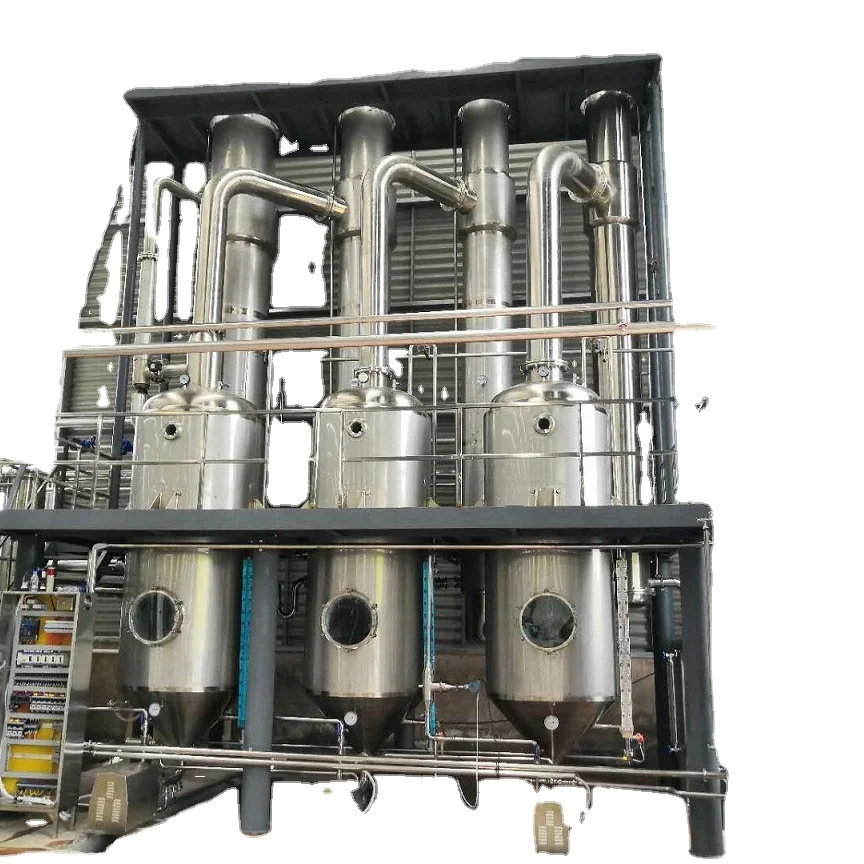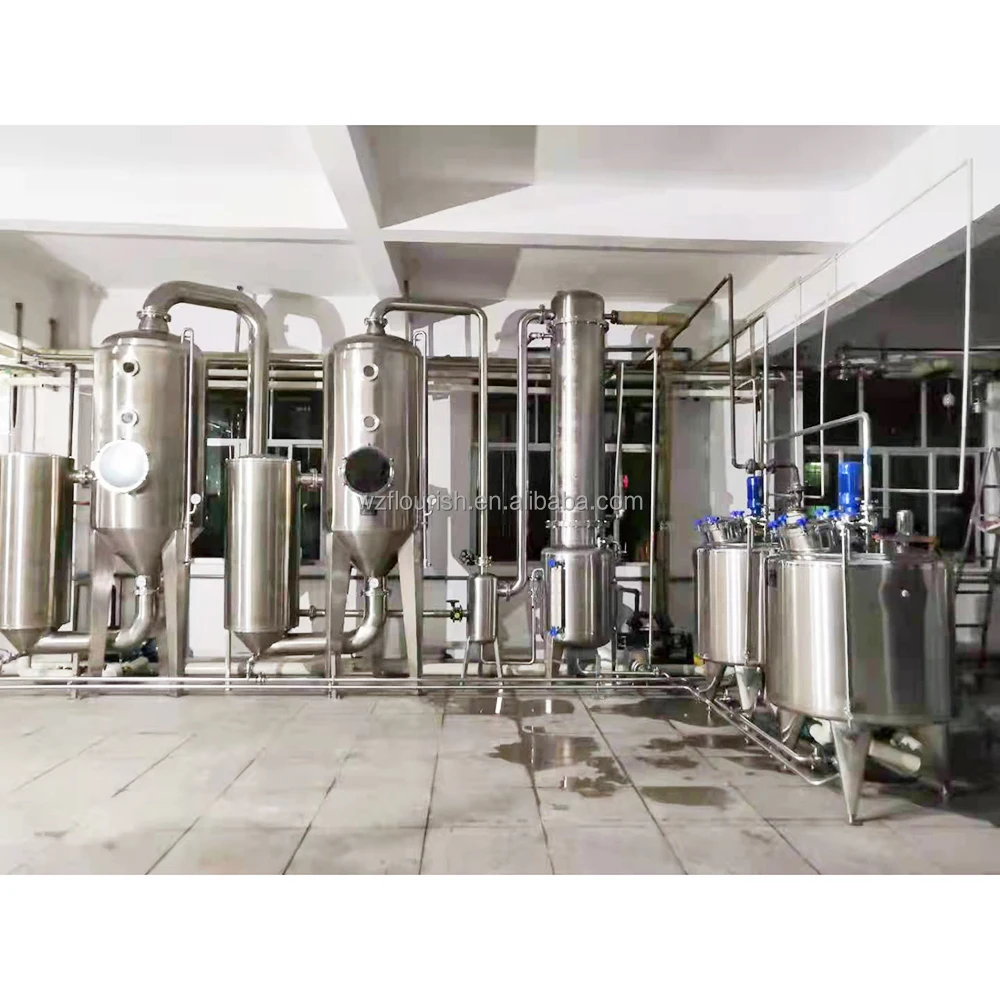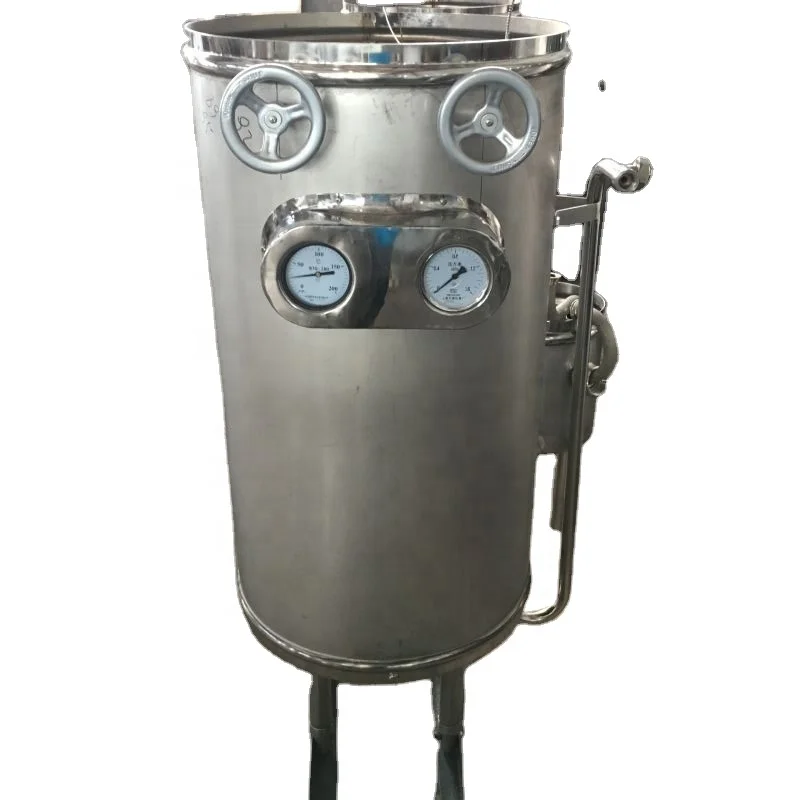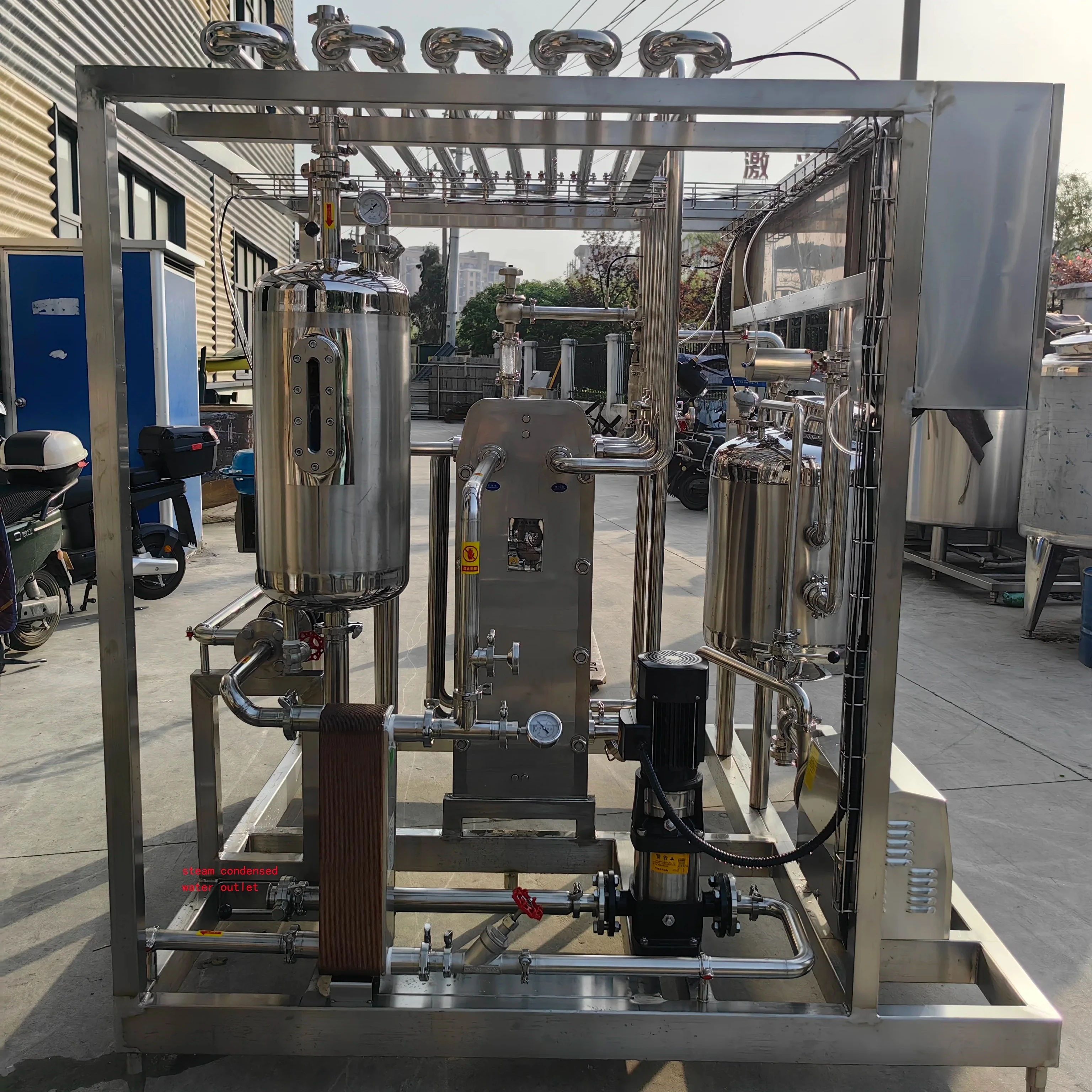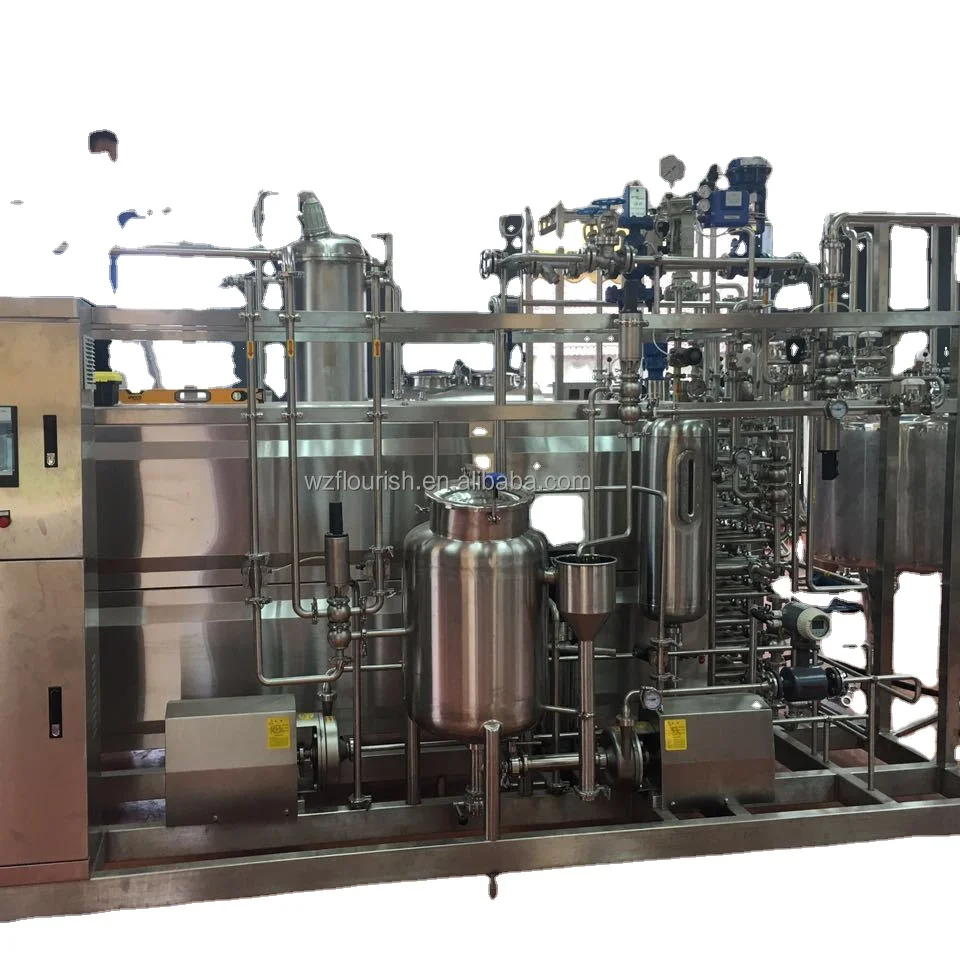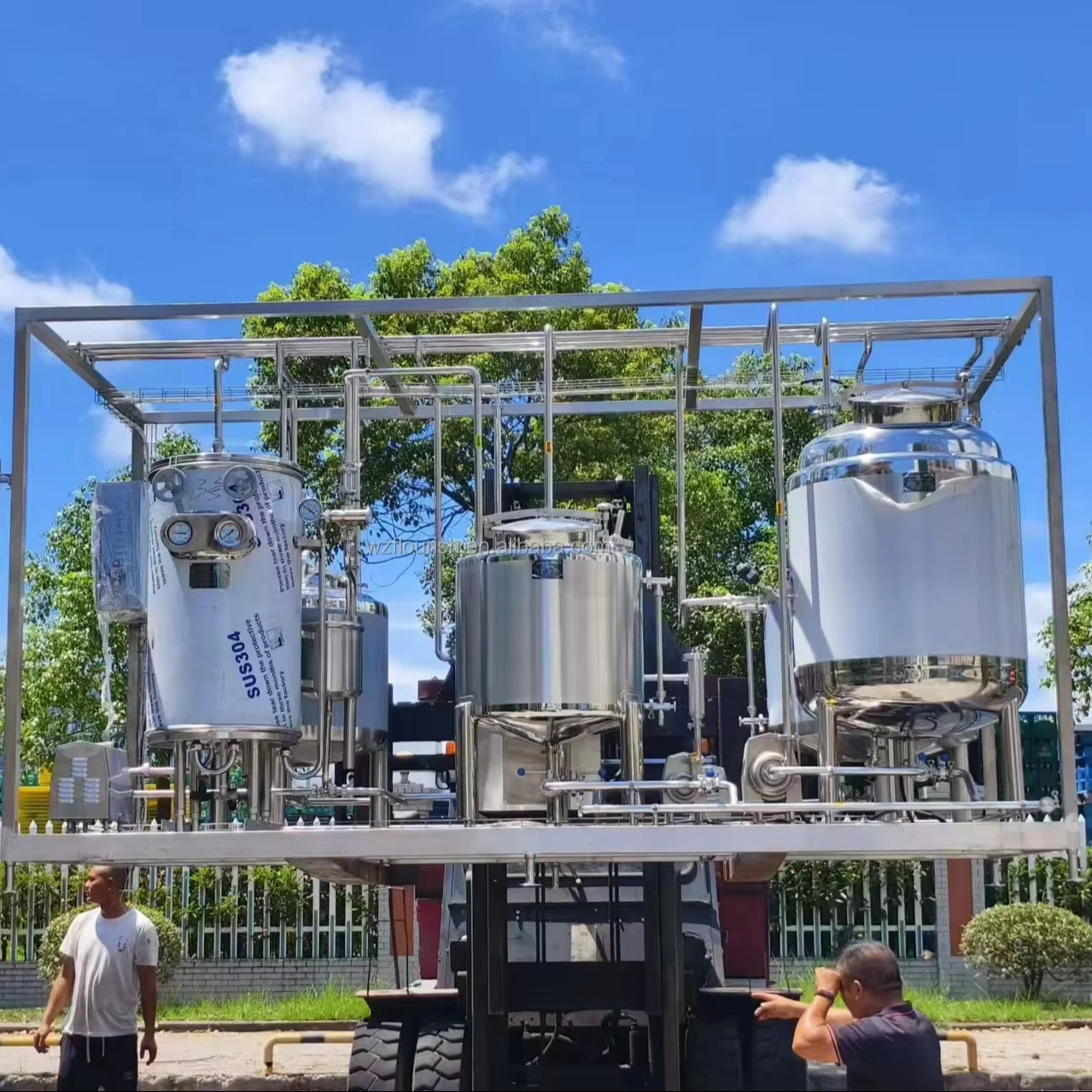ABOUT
Wenzhou Vince Machinery Science Co., Ltd. was established in early 1980s. Our company covers an area of 6500 square meters and is an independent legal representative firm, possessing rich economic technology strength. Our company is a high tech enterprise and plays an important role in national dairy, foodstuff, pharmacy and machinery industries. We are a beverage machinery supplier.
Since the establishment, our company has mainly engaged in dairy products, foodstuff, beverage machinery, bean products, yellow wine, medicines and fermentation projects. What's more, our company supplies a complete sequence services in manufacturing, installation, test and personnel train, as well as the whole direction service design and consulting service on product project construction or enlargement artistic distribution engineering sets budget.
PRODUCTS
Energy Efficient Milk Pasteurization Equipment for Savings
Reduced Energy Consumption: The Core Advantage
Energy efficiency is paramount in today's world, and the dairy industry is no exception. Traditional pasteurization methods, such as batch pasteurization, involve heating large volumes of milk to specific temperatures for extended periods. This process is inherently energy-intensive, relying heavily on fossil fuels and contributing significantly to a plant's carbon footprint. Energy-efficient pasteurization equipment, on the other hand, employs advanced technologies to minimize energy usage. This might involve the use of plate heat exchangers, which offer significantly higher heat transfer rates compared to traditional methods. These exchangers use smaller surface areas to achieve the same level of heating, resulting in less energy waste.
Furthermore, many modern systems incorporate features like heat recovery systems. These systems capture the heat from the outgoing, already pasteurized milk and use it to preheat the incoming raw milk. This drastically reduces the amount of energy needed to reach the target pasteurization temperature, leading to substantial savings in both energy and operational costs. The overall impact is a decrease in greenhouse gas emissions and a more sustainable dairy production process.
Enhanced Process Control and Optimization
Energy-efficient pasteurization equipment is often coupled with advanced control systems, allowing for precise monitoring and adjustments of the pasteurization process. This level of control is crucial for ensuring consistent product quality and minimizing energy waste. Sensors and automated systems continuously monitor temperature, flow rate, and pressure, providing real-time feedback to optimize the heating and cooling cycles. Deviations from the desired parameters are immediately detected and corrected, preventing energy loss due to inefficiencies or errors.
This level of precision also allows for a reduction in over-pasteurization, a common issue with less sophisticated systems. Over-pasteurization can degrade the quality of the milk, affecting its taste and nutritional value. Precise control systems ensure the milk is heated only to the necessary temperature for the required duration, maximizing quality while minimizing energy use.
Improved Operational Efficiency and Reduced Downtime
Beyond energy savings, energy-efficient pasteurization systems often improve operational efficiency. Many modern designs are compact and require less floor space compared to their traditional counterparts. This can be advantageous, particularly for plants with limited space or those looking to upgrade their existing facilities. Furthermore, the advanced control systems and robust construction of this equipment often lead to reduced downtime due to maintenance or malfunctions. This results in a more consistent and reliable production process, minimizing disruptions and maximizing output.
The integration of automated cleaning-in-place (CIP) systems further enhances operational efficiency. These systems automate the cleaning process, minimizing labor costs and reducing the risk of human error, which could lead to contamination or equipment damage. The combination of reduced downtime and streamlined operations translates to significant cost savings over the equipment's lifespan.
Return on Investment (ROI) and Long-Term Sustainability
While the initial investment in energy-efficient pasteurization equipment might be higher than for traditional systems, the long-term benefits often translate into a strong return on investment (ROI). The significant savings in energy costs, coupled with reduced operational expenses and increased efficiency, can quickly offset the initial investment. Moreover, the environmental benefits, such as decreased greenhouse gas emissions, contribute to a more sustainable business model, enhancing a company's brand image and potentially attracting environmentally conscious consumers.
Choosing energy-efficient milk pasteurization equipment is not just about immediate cost savings; it's an investment in a more sustainable and profitable future for the dairy industry. By adopting these advanced technologies, dairy processors can contribute to a greener planet while enhancing their competitiveness in the marketplace.
SUBSCRIBE
INQUIRY

